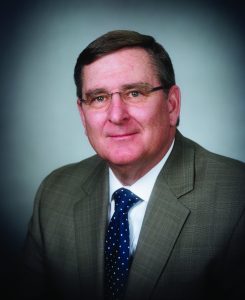Coalition building plays an important role in the power and influence that the Permian Basin Petroleum Association (PBPA) can harness especially when member companies have aligned interest and work together to impact legislative and regulatory policies. Sometimes the PBPA and other oil and gas trade associations work together to benefit all oil and gas producers. Other times, we may be more interested in working independently where a particular issue has a greater impact locally verses the industry as a whole. As a member-based organization, we need to continually communicate our various positions and hear each other.
The PBPA picked up the banner back in 2014 when the Fish and Wildlife Service (FWS) listed the Lesser Prairie Chicken (LEPC) as a threatened species in Southeast New Mexico, West Texas, North Texas, and in three other states to the north included in the five-state range. Our member companies, as well as many individual members, supported the enormous effort and large financial requirement that was necessary to file suit against the federal government. The coalition, however, was greater than just the industry as several counties from East New Mexico also joined the suit. Together, we argued that the FWS did not follow their own procedures in the listing decision. The court agreed with us and vacated the listing. The PBPA, and its partners, prevailing in this case may well prove to be a watershed moment in time when the PBPA took on “Goliath” and won. Many insiders in Washington D.C. couldn’t believe the PBPA was successful in challenging the FWS.
After the court decision, PBPA member companies continued to join and participate in the Candidate Conservation Agreements (CCA) and Candidate Conservation Agreements with Assurances (CCAA) to help fund and support ongoing efforts to restore LEPC habitat and enhance the repopulation of the LEPC species. Other various trade association members have also joined in the CCA and CCAA’s programs. Tens of millions of dollars have been supplied and hundreds of thousands of acres have been enrolled to enhance the efforts to increase the numbers of birds. It takes time, effort, and Mother Nature’s cooperation to affect and improve the bird population.
Today, just nine years after the court vacated the FWS listing, and despite all of the additional efforts made in support of the bird, the FWS is back at it again. They have now indiscriminately subdivided the LEPC populations into new and distinct areal groups and listed areas in Southeast New Mexico and West Texas as endangered and other areas in North Texas, Oklahoma, Kansas, and Colorado as threatened. If this listing is allowed to stand, it will have devastating consequences for local industries along with the communities and the jobs these businesses support.
Thankfully, the PBPA has built a very robust coalition which, at the time this column was written, includes the Texas Attorney General (Ken Paxton), the Oklahoma Attorney General, the Kansas Attorney General, the National Cattleman’s Beef Association, Texas Cattle Feeder’s Association, Kansas Livestock Association, Oklahoma Cattlemen’s Association, the New Mexico Cattle Grower’s Association, the Kansas Independent Oil and Gas Association, and the Petroleum Alliance of Oklahoma. We are also anticipating several other agricultural and oil and gas trade groups from the five-state range and a number New Mexico counties to join us as well. Our organization (and coalition) is in a much better position today to challenge the FWS and we are prepared to defend the efforts we have all made to create an environment where the LEPC can coexist with oil and gas production, farming, ranching, and cattle raising operations. It will take a concerted effort and a strong coalition to win again but I am confident the PBPA will once again rise to the challenge.
To fight these battles, let alone to win them, takes tremendous time, effort, and resources. We greatly appreciate the PBPA members and our partners who support the advocacy undertaken at PBPA on a daily basis. If you aren’t a PBPA member or are a member that is interested in learning more about supporting these advocacy efforts, reach out to any of our staff for more information.










